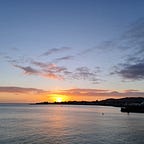Week in Numbers
4 mandates issued statements
4 statements issued
5 countries subject to statements
1 country visit concluded
Four UN human rights experts responsible for thematic Special Procedures mandates issued four statements during the week, including one joint statements and one end-of-mission statement/press release. These mandates are (name of country or issue concerned in parentheses; * indicates country visit, ** indicates joint statement):
1. Health (WHO decision to depathologise trans identities**)
2. Sexual orientation and gender identity (WHO decision to depathologise trans identities**)
3. Slavery (Togo*)
4. Torture (United Kingdom/United States/Ecuador/Sweden)
The statements issued during the week concerned five countries and one thematic issue. A country visit concluded in Togo this week. The concerned countries are (name of mandate who issued statement concerning that country or issue in parentheses, asterisk indicates country visit):
1. WHO decision to depathologise trans identities (sexual orientation and gender identities, health)
2. Togo (slavery*)
3. United Kingdom/United States/Ecuador/Sweden, concerning Julian Assange (torture)
Special Procedures mandate holders took up various issues this week, including the decision of the World Health Organisation to end the categorisation of trans-related conditions as mental and behavioural disorders and the on-going confinement and potential extradition of Julian Assange.
Mandate-holders raised an individual case in the joint statement on United Kingdom/United States/Ecuador/Sweden.
Public Consultation
The following is a non-exhaustive list of Special Procedures who are calling for input or submission into their upcoming report or country visit (please click on hyperlink for more details):
The Special Rapporteur on freedom of religion or belief is calling for inputs for his next report to the General Assembly on the theme of antisemitism — Deadline 7 June 2019.
The Special Rapporteur on human rights and the environment is calling for inputs for his next report to the General Assembly, focusing on the theme of safe climate — Deadline: 8 June 2019. He is concurrently seeking inputs for his next report to the Human Rights Council focusing on good practices specifically related to the implementation of the right to a safe, clean, healthy and sustainable environment — Deadline: 8 June 2019.
The Special Rapporteur on extreme poverty and human rights will conduct an official country visit to Malaysia from 12 to 22 August 2019, and seeks information on poverty and the realization of human rights in Malaysia — Deadline 14 June 2019.
The Independent Expert on foreign debt is calling for contributions to his next report to the Human Rights Council on the theme of “private debt and human rights” — Deadline 31 July 2019.
Nomination, Selection and Appointment
Call for applications for the vacancy of the Independent Expert on the situation of human rights in the Central African Republic has been published. Deadline: 26 June 2019. For more information, visit this link: https://www.ohchr.org/EN/HRBodies/HRC/SP/Pages/HRC42.aspx.
List of statements issued during the week (hyperlinked to full text)
1. UN experts hail move to ‘depathologise’ trans identities (29 May 2019)
2. UN expert says “collective persecution” of Julian Assange must end now (31 May 2019)
4. Togo must step up efforts to end worst forms of child labour by 2025 — UN expert (31 May 2019)
Background
Special Procedures form the largest body of independent experts in the UN Human Rights system. They are appointed and mandated by the UN Human Rights Council to conduct independent fact-finding and monitoring to address either specific country situations or thematic issues in all parts of the world. Serving in their individual capacity and without receiving a salary for their work, they are not UN staff and are independent from any government or organization. These experts monitor, research and report annually to the Council and the General Assembly on issues relevant to their mandate, conduct country visits, conduct public and private advocacy, consult with and seek input from various actors, and communicate with governments, businesses, international organisations and other actors on individual cases, laws and policies, and other relevant issues of concern. As of November 2017, there are 56 Special Procedures (44 relating to thematic issues and 12 relating to countries or territories) with currently 80 mandate-holders. For more information, see: http://www.ohchr.org/EN/HRBodies/SP/Pages/Welcomepage.aspx
